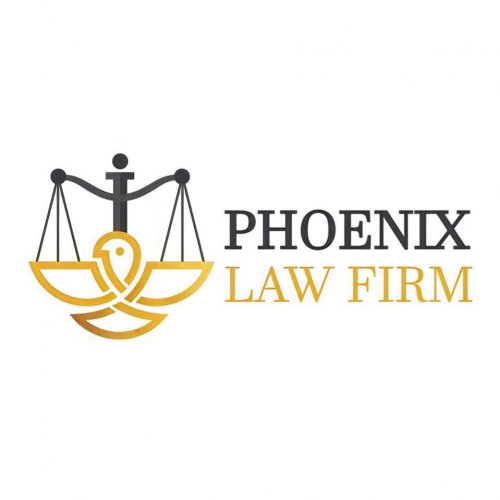Best Employment & Labor Lawyers in Beirut
Share your needs with us, get contacted by law firms.
Free. Takes 2 min.
List of the best lawyers in Beirut, Lebanon
About Employment & Labor Law in Beirut, Lebanon
Employment and labor law in Beirut, Lebanon, governs the relationship between employers and employees. This field of law addresses various aspects such as employment contracts, workers' rights, collective bargaining, workplace safety, and dispute resolution. Lebanon's legal framework aims to balance the interests of employers and the protection of workers' rights, influenced by both local and international labor standards. The Ministry of Labor oversees the enforcement of these laws, ensuring fair labor practices across sectors.
Why You May Need a Lawyer
Individuals and businesses may require legal assistance in employment and labor law for several reasons. Common situations include negotiating or drafting employment contracts, handling wrongful termination or discrimination cases, addressing workplace safety compliance, dealing with unpaid wages or benefits, and navigating through merger-related workforce restructuring. A lawyer specializing in employment and labor law can provide essential guidance to protect your rights and resolve conflicts efficiently.
Local Laws Overview
Beirut's employment and labor laws are integral to maintaining fair practices in the workforce. Key aspects include the Labor Law, which lays out conditions of employment, rights for paid leaves, and provisions for occupational health and safety; the National Social Security Fund (NSSF) regulations, which ensure social insurance coverage for employees; and anti-discrimination regulations that protect workers from unfair treatment based on gender, religion, or other characteristics. Additionally, labor unions play a significant role in representing workers' interests in various industries.
Frequently Asked Questions
What are the standard working hours and overtime regulations in Beirut?
Standard working hours are generally set at 48 hours per week. Overtime is permitted but should not exceed 12 hours per week, and employees must receive overtime pay at a higher rate.
Do employees in Beirut have the right to paid leave?
Yes, employees are entitled to paid annual leave, sick leave, and maternity or paternity leave. The specifics may vary depending on the employment contract and relevant labor law provisions.
How is minimum wage determined in Beirut?
The minimum wage in Beirut is set by the Council of Ministers, taking into account economic factors and living costs, and is subject to periodic reviews and adjustments.
Are there specific laws regarding employee termination?
Termination laws in Beirut require a valid reason for dismissal, and employers must provide notice and severance pay. Wrongful termination claims can be filed if an employee believes they were dismissed without just cause.
What protections exist against workplace discrimination?
The law prohibits discrimination on the basis of gender, religion, or political affiliation, among other factors. Victims of discrimination can file complaints with the Ministry of Labor or seek legal action.
How can disputes between employees and employers be resolved?
Disputes can be addressed through internal grievance procedures, the Ministry of Labor's conciliation services, or through litigation in labor courts if necessary.
Are foreign workers protected under Lebanese labor laws?
Foreign workers are generally protected under Lebanese labor laws, but there are specific permits and regulations that must be adhered to, especially concerning residency and work authorization.
How important are labor unions in Beirut?
Labor unions are influential in Beirut, actively engaging in collective bargaining to protect workers' rights, negotiate better terms, and advocate for fair labor conditions and salaries.
What is the role of the National Social Security Fund?
The National Social Security Fund provides coverage for health, maternity, family allowances, and end-of-service indemnity to registered employees, offering financial security and support.
Are internships and apprenticeships regulated?
Yes, there are specific regulations governing internships and apprenticeships, focusing on the duration, compensation, and rights of individuals in these roles to ensure fair treatment and learning opportunities.
Additional Resources
For further assistance, individuals can contact the Ministry of Labor, the National Social Security Fund, and various labor unions in Beirut. Non-governmental organizations and legal aid centers may also offer support and guidance on employment-related issues.
Next Steps
If you need legal assistance in employment and labor matters, consider consulting with a lawyer who specializes in this field. They can provide personalized advice and representation. Start by researching reputable law firms or legal services in Beirut, and schedule a consultation to discuss your case. Additionally, engaging with local labor unions or seeking advice from government bodies can provide further support in understanding your rights and options.
Lawzana helps you find the best lawyers and law firms in Beirut through a curated and pre-screened list of qualified legal professionals. Our platform offers rankings and detailed profiles of attorneys and law firms, allowing you to compare based on practice areas, including Employment & Labor, experience, and client feedback.
Each profile includes a description of the firm's areas of practice, client reviews, team members and partners, year of establishment, spoken languages, office locations, contact information, social media presence, and any published articles or resources. Most firms on our platform speak English and are experienced in both local and international legal matters.
Get a quote from top-rated law firms in Beirut, Lebanon — quickly, securely, and without unnecessary hassle.
Disclaimer:
The information provided on this page is for general informational purposes only and does not constitute legal advice. While we strive to ensure the accuracy and relevance of the content, legal information may change over time, and interpretations of the law can vary. You should always consult with a qualified legal professional for advice specific to your situation.
We disclaim all liability for actions taken or not taken based on the content of this page. If you believe any information is incorrect or outdated, please contact us, and we will review and update it where appropriate.
Browse employment & labor law firms by service in Beirut, Lebanon
Beirut, Lebanon Attorneys in related practice areas.










